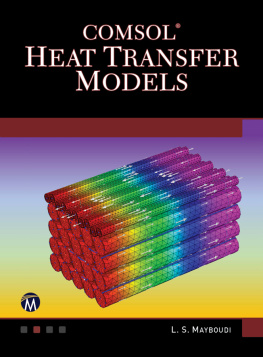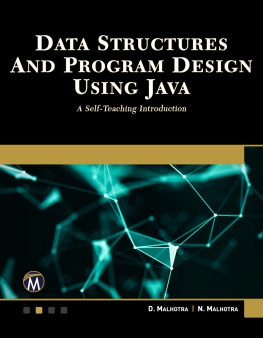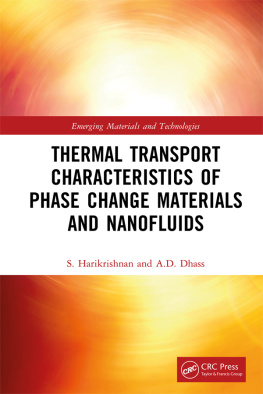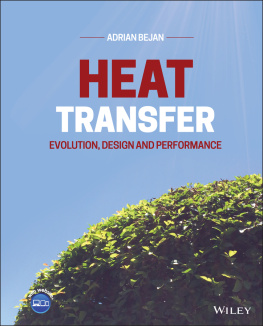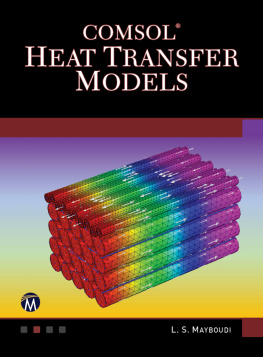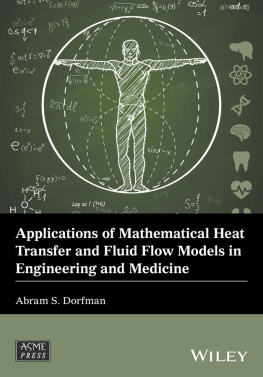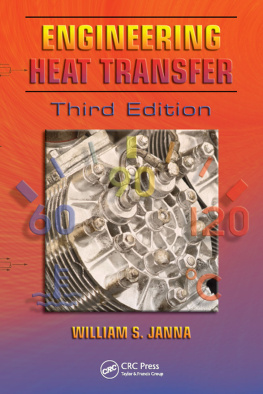Layla S. Mayboudi - Comsol® Heat Transfer Models
Here you can read online Layla S. Mayboudi - Comsol® Heat Transfer Models full text of the book (entire story) in english for free. Download pdf and epub, get meaning, cover and reviews about this ebook. year: 2020, publisher: Mercury Learning and Information, genre: Children. Description of the work, (preface) as well as reviews are available. Best literature library LitArk.com created for fans of good reading and offers a wide selection of genres:
Romance novel
Science fiction
Adventure
Detective
Science
History
Home and family
Prose
Art
Politics
Computer
Non-fiction
Religion
Business
Children
Humor
Choose a favorite category and find really read worthwhile books. Enjoy immersion in the world of imagination, feel the emotions of the characters or learn something new for yourself, make an fascinating discovery.
- Book:Comsol® Heat Transfer Models
- Author:
- Publisher:Mercury Learning and Information
- Genre:
- Year:2020
- Rating:4 / 5
- Favourites:Add to favourites
- Your mark:
- 80
- 1
- 2
- 3
- 4
- 5
Comsol® Heat Transfer Models: summary, description and annotation
We offer to read an annotation, description, summary or preface (depends on what the author of the book "Comsol® Heat Transfer Models" wrote himself). If you haven't found the necessary information about the book — write in the comments, we will try to find it.
Comsol® Heat Transfer Models — read online for free the complete book (whole text) full work
Below is the text of the book, divided by pages. System saving the place of the last page read, allows you to conveniently read the book "Comsol® Heat Transfer Models" online for free, without having to search again every time where you left off. Put a bookmark, and you can go to the page where you finished reading at any time.
Font size:
Interval:
Bookmark:

LICENSE, DISCLAIMER OF LIABILITY, AND LIMITED WARRANTY
By purchasing or using this book and its companion files (the Work), you agree that this license grants permission to use the contents contained herein, but does not give you the right of ownership to any of the textual content in the book or ownership to any of the information, files, or products contained in it. This license does not permit uploading of theWork onto the Internet or on a network (of any kind) without the written consent of the Publisher. Duplication or dissemination of any text, code, simulations, images, etc. contained herein is limited to and subject to licensing terms for the respective products, and permission must be obtained from the Publisher or the owner of the content, etc., in order to reproduce or network any portion of the textual material (in any media) that is contained in the Work.
MERCURY LEARNING AND INFORMATION (MLI or the Publisher) and anyone involved in the creation, writing, production, accompanying algorithms, code, or computer programs (the software), and any accompanying Web site or software of the Work, cannot and do not warrant the performance or results that might be obtained by using the contents of the Work. The author, developers, and the Publisher have used their best efforts to insure the accuracy and functionality of the textual material and/or programs contained in this package; we, however, make no warranty of any kind, express or implied, regarding the performance of these contents or programs. The Work is sold as is without warranty (except for defective materials used in manufacturing the book or due to faulty workmanship).
The author, developers, and the publisher of any accompanying content, and anyone involved in the composition, production, and manufacturing of this work will not be liable for damages of any kind arising out of the use of (or the inability to use) the algorithms, source code, computer programs, or textual material contained in this publication. This includes, but is not limited to, loss of revenue or profit, or other incidental, physical, or consequential damages arising out of the use of this Work.
The sole remedy in the event of a claim of any kind is expressly limited to replacement of the book and only at the discretion of the Publisher. The use of implied warranty and certain exclusions vary from state to state, and might not apply to the purchaser of this product.
Companion files also available for downloading from the publisher by writing to .
Layla S. Mayboudi, PhD

Copyright 2020 by MERCURY LEARNING AND INFORMATION LLC. All rights reserved.
This publication, portions of it, or any accompanying software may not be reproduced in any way, stored in a retrieval system of any type, or transmitted by any means, media, electronic display or mechanical display, including, but not limited to, photocopy, recording, Internet postings, or scanning, without prior permission in writing from the publisher.
Publisher: David Pallai
MERCURY LEARNING AND INFORMATION
22841 Quicksilver Drive
Dulles, VA 20166
www.merclearning.com
800-232-0223
L. S. Mayboudi. COMSOLHEAT TRANSFER MODELS.
ISBN: 978-1-68392-211-7
The publisher recognizes and respects all marks used by companies, manufacturers, and developers as a means to distinguish their products. All brand names and product names mentioned in this book are trademarks or service marks of their respective companies. Any omission or misuse (of any kind) of service marks or trademarks, etc. is not an attempt to infringe on the property of others.
Library of Congress Control Number: 2019940575
192021321 Printed on acid-free paper in the United States of America.
Our titles are available for adoption, license, or bulk purchase by institutions, corporations, etc.
For additional information, please contact the Customer Service Dept. at 800-232-0223 (toll free).
All of our titles are available in digital format at . The sole obligation of MERCURY LEARNING AND INFORMATION to the purchaser is to replace the book or disc, based on defective materials or faulty workmanship, but not based on the operation or functionality of the product.
To the Sunrise, Nights of Ten, Pair and Individual,
Time, and Green Rosary Beads
You are the one who created warm heat and cool shade.
Great Mail, 62 []
This book can be considered a companion to the two previous publications by the authorHeat Transfer Modelling Using COMSOL Slab to Radial Fin []. For readers aiming to improve their heat transfer modeling skills, one possible sequence is to start with the present book, which will provide a broad perspective of the subject, and then continue to learn in greater depth about the geometry creation stage of model building. Those interested in the detailed exploration of heat transfer modeling of fins are directed to the related book. The same book will also provide an additional source of practice examples for the reader.
This section provides an outline of this work, a road map for the reader to this journey. The purpose is to become familiar with the field of heat transfer modeling through the examples from nature, the world surrounding us, such as animals and plants, but also the human body and the functions that help us live. Asking questions, learning, and trying to understand things are the most basic elements of humanity. If there is one single lesson that the author would like the reader to take from this publication, it is to never stop questioning and leaning; these are the privileges given to all, rich or poor, old or young. There exists nothing such as are we too curious!
The subject in the context of this publication is best understood if followed in the order the material is presented. The author encourages the reader to review the suggested approaches and to work through the presented problems, not only to visualize and understand them, but also to construct them manually as the first step and then use the finite element method tools to model the parts. There are multiple ways to approach each modeling problem, and this includes how one defines the relationships between the component physics. For example, you may decide to define multiple physics and solve each individually, feeding the results of one to the other, or to solve them simultaneously. You may decide to import the geometry or mesh into the modeling tool or to create the model geometry internally, using the built-in geometry-creation features. To gain a deeper understanding of the field, after completion of the related subject matter, the reader should attempt the Examples and Case Studies, exploring different possible ways to tackle the same problem using the building blocks of knowledge provided here.
While information learned from this book may be transferred to other FEM tools, the books primary focus is on COMSOL Multiphysics modeling, with version 5.4 being used. This software consists of a core module and many specialized add-on modules. This book will present techniques which assume availability of the Heat Transfer module and the CAD Import module (or LiveLinkTM module connecting COMSOL Multiphysics with a specific CAD tool).
Font size:
Interval:
Bookmark:
Similar books «Comsol® Heat Transfer Models»
Look at similar books to Comsol® Heat Transfer Models. We have selected literature similar in name and meaning in the hope of providing readers with more options to find new, interesting, not yet read works.
Discussion, reviews of the book Comsol® Heat Transfer Models and just readers' own opinions. Leave your comments, write what you think about the work, its meaning or the main characters. Specify what exactly you liked and what you didn't like, and why you think so.

